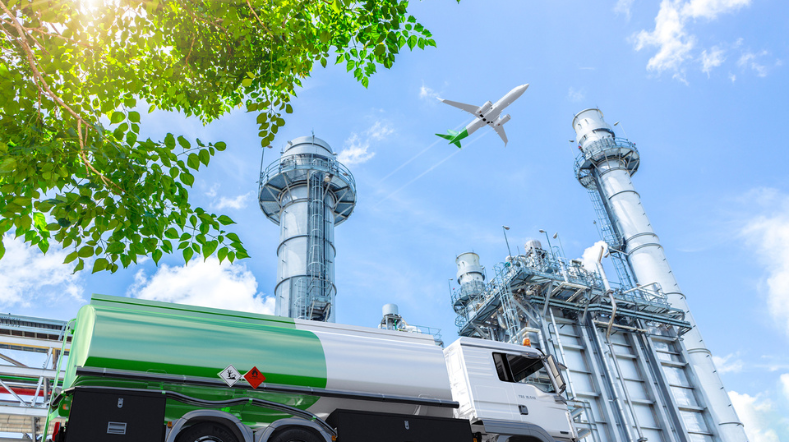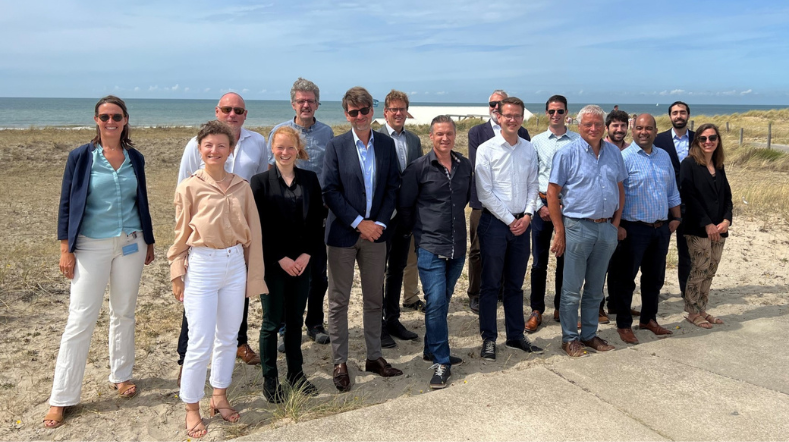
European project HEREWEAR to develop biobased circular textiles
Status project
2020 - present
In cooperation with
Centexbel, Consortium Herewear
Within the Horizon 2020 project HEREWEAR, TNO aims, as part of a European consortium, to develop biobased circular textiles.
Today, a large amount of clothing is produced in low cost countries, sometimes far away from the brands creating them, under poor labour conditions and with few concerns for the environmental impact. The vast majority of clothing is made of two types of fibres; polyester and cotton. These, however, have considerable disadvantages and shortcomings.
Polyester is oil-based and mainly sourced in the Middle East, whilst cotton is mostly grown in e.g. India, with a large environmental impact because of pesticides and high water consumption. Moreover, small fibre fractions are released from the garments, especially from polyester fibres, during washing and wearing. These microplastics end up and accumulate in soil and water, and thus contribute to the well-known plastic soup. The textile sector is considered the second largest contributor of microplastics.
Locally produced circular textiles
The HEREWEAR project aims at the creation of an EU economy for locally produced circular textiles and clothing made from bio-based resources. This will be realised by a holistic approach covering all necessary levels.
On the technical side, emerging sustainable technologies for wet and melt spinning of cellulose and bio-based polyesters, for yarn and fabric production and for coating and colouring will be developed and piloted at semi-industrial scale. Further, we aim to significantly reduce the microfibre release via measures along the textile manufacturing process.
Prototype work- and streetwear
Further, the project will maximise the sustainability and circularity of our clothing via connecting regional microfactories and by platform-supported, networked production resources. Guidelines will be provided to support the design of fashion goods; with focus on bio-based materials and reuse/recycling. Garment prototypes for streetwear and corporate clothing will demonstrate the HEREWEAR circular bio-based concept.
Our contribution to HEREWEAR
TNO will contribute to this by adapting our patented FABIOLA™ process to fractionate residual biomass to produce the cellulose needed for the envisioned fabrics. FABIOLA™ utilises the cascading total biomass valorisation concept and produces high quality cellulose (for this project), lignin and inhibitor free hemi-cellulose.
Furthermore, TNO will produce cellulose from seaweed while also conserving the other valuable components such as hydro-colloids, proteins and minerals. Biomass has a prominent role in the transition to sustainability, preferably where sustainable alternatives are not available or only to a limited extent: as a high-grade feedstocks for the biobased economy.
Horizon 2020 project
The HEREWEAR consortium is strongly SME driven, including 8 SMEs and 1 large enterprise. These are completed with 6 research organisations. This way HEREWEAR covers all required expertise and infrastructure from academic, applied research and industry from 9 different EU countries, complemented with the support of a US SME.
HEREWEAR is a Horizon 2020 project and is co-funded by the European Union. It will last 48 months and started on October 1st, 2020. It is coordinated by Centexbel, the Belgian research centre for textiles and plastics.
Get inspired
Renewable fuels


Webinar: Advancing Renewable fuels: biofuels and e-fuels
TNO develops method to produce biocarbon


New technology combines biocarbon production for industry with negative emissions

Producing renewable DME using renewable energy and CO2


